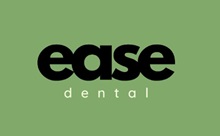Have you ever had issues with your teeth? Have you ever thought about Extracting Your Own Tooth out by yourself? If you’ve attempted to extract a tooth on your own without any complications, you might assume it’s perfectly safe. In fact, some cases have reported that self-extraction didn’t result in any problems with the teeth or gums. However, if you’re considering removing a tooth without the assistance of a professional dentist, there are important factors to consider to avoid future complications.
It’s crucial to understand the anatomy of your teeth. The outermost layer is the enamel, followed by the dentin beneath it, and the innermost part is the pulp. When pulling a tooth on your own, be extremely careful not to damage the pulp, as this part contains vital nerves. If the pulp is harmed, you could face nerve damage that may require medical treatment.
On the other hand, damage to the enamel or dentin during self-extraction can be resolved by consulting a dentist, who may suggest a filling or other restorative measures. That said, pulling out your own tooth without consulting a dentist can be highly risky, especially due to the potential damage to the pulp, which can affect your nerves and overall oral health.
According to Dr. Zyya, individuals with underlying health conditions should never attempt to remove a tooth by themselves. The delicate nerves involved may aggravate pre-existing conditions, such as diabetes, cancer, or high blood pressure. Patients with these conditions should avoid self-extraction without dental supervision, as it could lead to severe swelling, gum infections, or even the need for surgery.
Beyond nerve damage, other complications that may arise from self-extraction include:
- Cavitation Infections
Applying excessive pressure while extracting a tooth can lead to cavitation infections. This condition causes discomfort, swelling, and may be accompanied by fever, making it difficult to manage without professional care. - Prolonged Bleeding
One of the most serious risks of extracting a tooth on your own is prolonged bleeding. This occurs when the gums are injured during the process, especially if you force the tooth out without considering how the gums might get cut or scraped.
In summary, while it may seem like a quick fix, removing a tooth without a dentist’s supervision can lead to significant oral health risks. Always seek professional help to avoid complications that can have long-term effects on your teeth, gums, and overall well-being. read also dental filling
